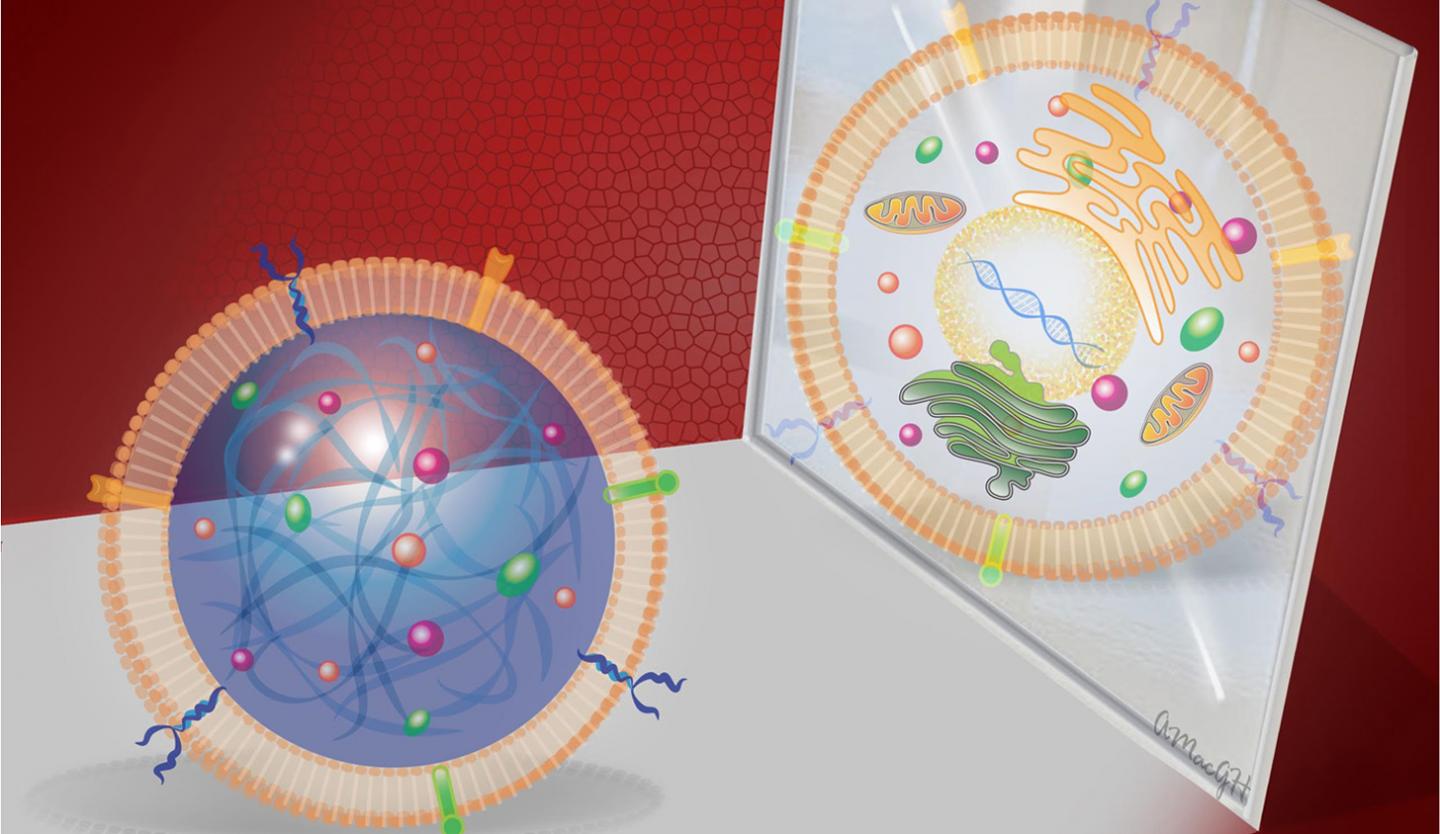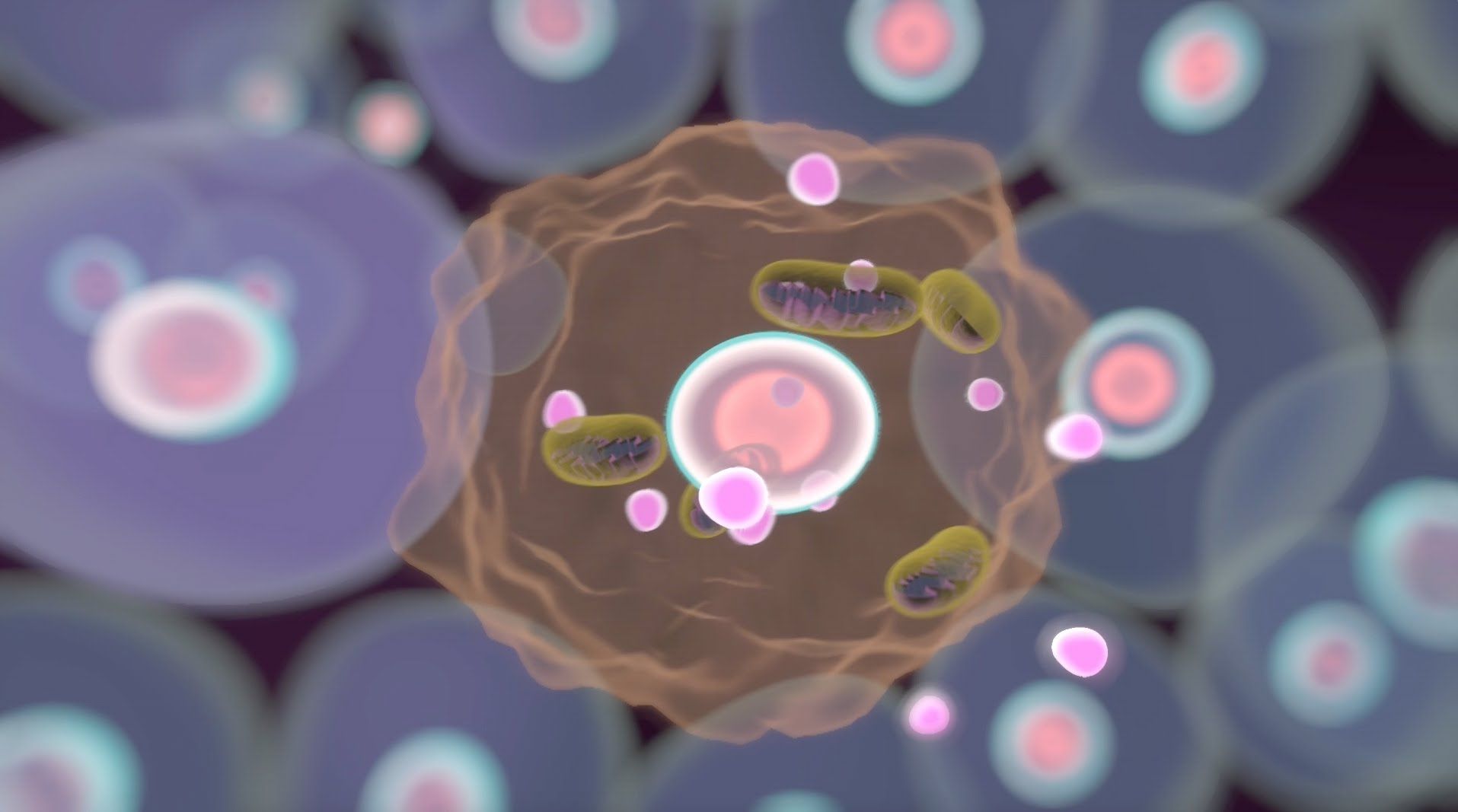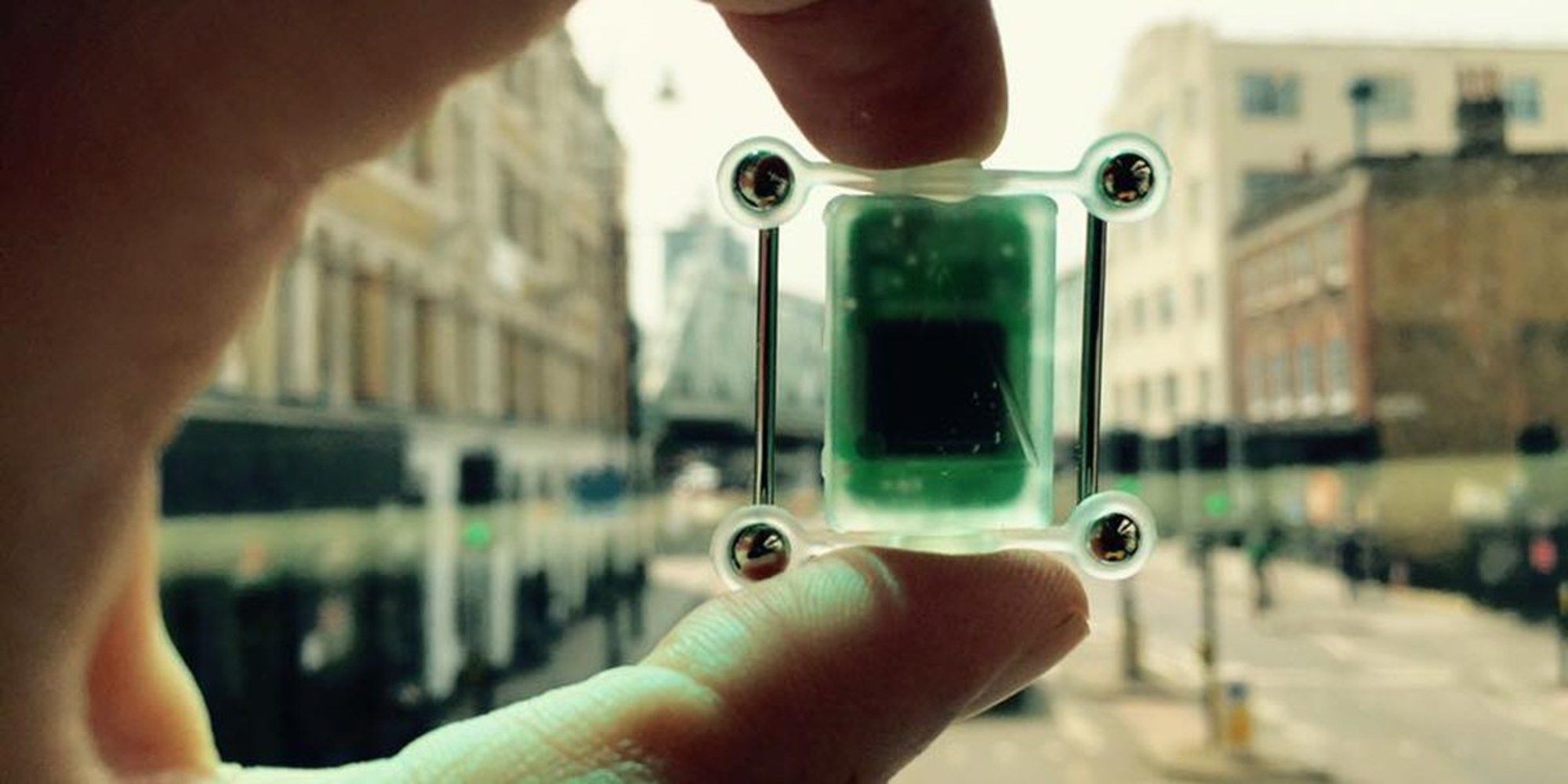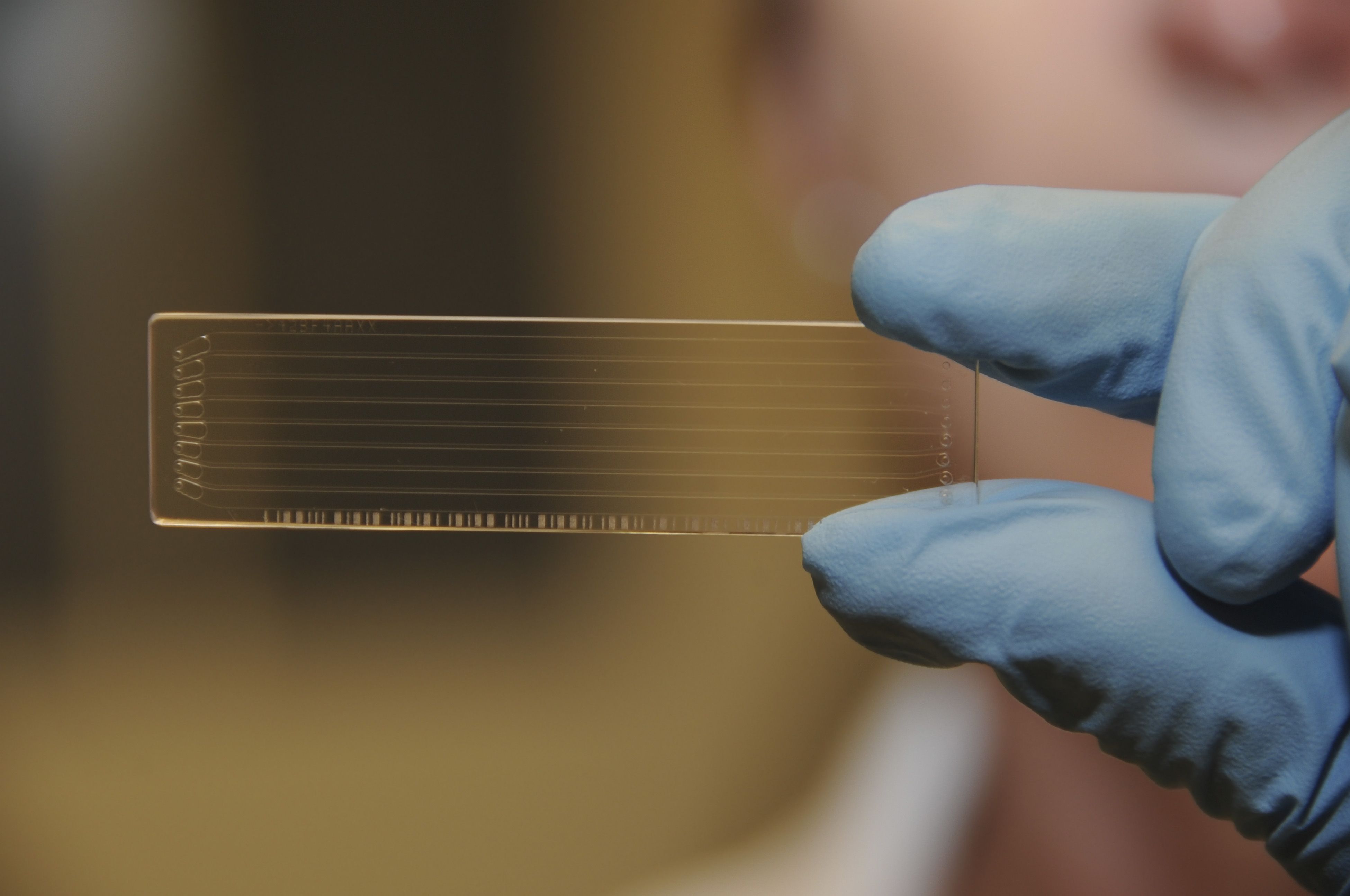Page 10554
Jan 14, 2017
Body-Pierced Gadget Turns You Into a Human Compass
Posted by Bryan Gatton in categories: biotech/medical, evolution, internet, neuroscience, transhumanism
Liviu Babitz is not content waiting around for evolution to improve upon his human form. Like other transhumanists, Babitz believes that science and technology can take a person’s intelligence, physical performance and psychological state to the next level, all in less than the span of a single lifetime.
To that end, he helped develop North Sense, a small silicone gadget that detects magnetic north. This is not a GPS device, nor a tracker. It’s not even connected to the Internet nor any other network. This is a new sensory organ designed to be pierced to a person’s body and vibrate each time the wearer faces magnetic north.
The idea is that over time, the brain will assimilate the vibration into the everyday human experience, enhancing it. That will open a person up to a world that exists beyond his or her own current capabilities.
Continue reading “Body-Pierced Gadget Turns You Into a Human Compass” »
Jan 14, 2017
Seeing the quantum future… literally
Posted by Andreas Matt in categories: computing, quantum physics
Scientists at the University of Sydney have demonstrated the ability to “see” the future of quantum systems, and used that knowledge to preempt their demise, in a major achievement that could help bring the strange and powerful world of quantum technology closer to reality.
The applications of quantum-enabled technologies are compelling and already demonstrating significant impacts — especially in the realm of sensing and metrology. And the potential to build exceptionally powerful quantum computers using quantum bits, or qubits, is driving investment from the world’s largest companies.
However a significant obstacle to building reliable quantum technologies has been the randomisation of quantum systems by their environments, or decoherence, which effectively destroys the useful quantum character.
Jan 14, 2017
Illumina wants to sequence your whole genome for $100
Posted by Matthew Holt in category: biotech/medical
I got my autosomal DNA analysed for $50 by FTDNA recently. Not a full gene sequence though. You get NGS tests for about $400 now.
The first sequencing of the whole human genome in 2003 cost roughly $2.7 billion, but DNA sequencing giant Illumina has now unveiled a new machine that the company says is “expected one day” to order up your whole genome for less than $100.
Illumina’s CEO Francis deSouza showed off the machine, called the NovaSeq, onstage at the JP Morgan Healthcare Conference in downtown San Francisco today, telling the crowd the machine’s scanning speed could decipher an entire human genome in less than an hour.
Continue reading “Illumina wants to sequence your whole genome for $100” »
Jan 14, 2017
An Ultra-Rare Crystal Is Found in a Meteorite, Revealing a Bizarre Form of Matter
Posted by Shane Hinshaw in categories: military, particle physics
In Brief
- Just a few micrometers in diameter, this quasicrystal is the third to be found in this particular meteorite, but it differs from the other two in both structure and chemical composition.
- While many applications have been discovered for synthetic quasicrystals, the rarity of naturally occurring ones has made them difficult to study.
A team led by Luca Bindi, a geologist from the University of Florence, has found an ultra-rare quasicrystal just a few micrometres wide in a meteorite that landed in Russia five years ago. The discovery has been detailed in Scientific Reports.
Two other quasicrystals have already been discovered in this particular meteorite, but the latest is different from its predecessors in both structure and chemical composition. This new quasicrystal is composed of aluminum, copper, and iron atoms structured in an arrangement very similar to the pentagon-based pattern of a soccer ball, a first of its kind in nature.
Jan 14, 2017
Woman died from superbug resistant to all available antibiotics in U.S.
Posted by Derick Lee in category: biotech/medical
The case serves as a “wake up call” that antibiotic resistance is a growing problem, experts say.
Jan 14, 2017
A Direct Infusion Of Immune Cells Could Fight Cancer
Posted by Steve Hill in categories: biotech/medical, genetics, neuroscience
A new way to treat brain cancer with our own immune cells.
Injecting genetically modified immune cells directly into the brain and spinal fluid has had remarkable effects on a deadly brain cancer
Glioblastoma is a particularly virulent form of brain cancer. Around 20,000 people in the United States are diagnosed each year and the disease typically has poor survival rates. In a new case reported in the New England Journal of Medicine, a man has undergone experimental CAR-T therapy to treat the condition. CAR-T therapy is a branch of immunotherapy, the field taking cancer treatment by storm, and involves infusing genetically modified T cells back into a patient to target cancer cells.
Continue reading “A Direct Infusion Of Immune Cells Could Fight Cancer” »
Jan 14, 2017
Microsoft just bought an AI startup that can outperform Facebook and Google
Posted by Klaus Baldauf in category: robotics/AI

Microsoft announced this morning that it has acquired Maluuba, a Toronto startup focused on using deep learning for natural language processing. Deep learning is an approach to artificial intelligence currently in vogue that has driven incredible gains in the field over the last five years. As Microsoft wrote in the blog post announcing the purchase, “We’ve recently set new milestones for speech and image recognition using deep learning techniques, and with this acquisition we are, as Wayne Gretzky would say, skating to where the puck will be next — machine reading and writing.”
The Verge covered Maluuba in the summer of 2016, when the startup shared the results of an AI system that could read and comprehend text with near human capability, outperforming similar systems shown off by Google and Facebook. Along with acquiring the company, Microsoft has also established closer ties with Yoshua Bengio, a pioneer in the field of deep learning who served as an advisor to Maluuba, and will now become and advisor to Microsoft’s AI division.
Continue reading “Microsoft just bought an AI startup that can outperform Facebook and Google” »
Jan 14, 2017
Synthetic stem cells offer benefits of natural stem cells without the risks
Posted by Klaus Baldauf in category: biotech/medical

Scientists have created the first synthetic version of a cardiac stem cell, offering therapeutic benefits comparable to those from natural stem cells — but without the risks and limitations, according to researchers from North Carolina State University, the University of North Carolina at Chapel Hill, and First Affiliated Hospital of Zhengzhou University in China.
The newly created synthetic stem cells cannot replicate. That means they could reduce some of the risks associated with natural stem-cell therapies — including tumor growth and immune rejection. The synthetic stem calls would also avoid the fragility of natural stem cells, which require careful storage and a multi-step process of typing and characterization before they can be used.
Continue reading “Synthetic stem cells offer benefits of natural stem cells without the risks” »
Jan 13, 2017
Researchers Discover a Pomegranate Compound Could Increase Life Expectancy, Reduce Aging
Posted by Shane Hinshaw in category: life extension

Scientists may be able to unlock the potential of a compound found in a common fruit, whose interaction with a certain gut bacteria helps ward off aging.















